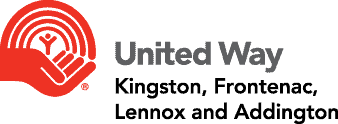In October/Fall 2021 the Homelessness Collective Impact Committee was convened by the United Way KFL&A with the goal to design, develop and adapt a system of care for people who are experiencing chronic homelessness.
Co-chaired by Susan Stewart of KFL&A Public Health and Bhavana Varma, the committee is made up of people from different sectors of the Kingston community, including funders, agencies, community organizations and groups, government, healthcare professionals – with the voice of people with lived experience informing and guiding strategy and decisions. The committee comes together regularly to review the current realities of homelessness within Kingston.
The issue of homelessness is a complex one which requires a collaborative effort and a forum where different questions – transformative questions can be asked. These can range from ‘how can we help someone find housing’ to ‘what does “home” mean to each individual on the path to being housed’. There is a need to work with a person’s unique circumstances so we can find a better way forward.
In Kingston, there are just over 200 people who are not permanently housed. This number does not include the hidden homeless – people who may be living rough, couch-surfing or accessing other inadequate housing options.
Based on a recent review of the system, it appears that the shelter system is working – as best as can be expected with reduced capacity and other challenges due to the pandemic. Housing First principles and practices are adopted. There appear to be gaps to support people who are often classified as ‘hard-to-serve’.
Many people cycle in and out of homelessness, often due to substance use, mental illness, behavioural issues. The Integrated Care Hub provides spaces during the day, services, food, a consumption site. At night there is space for 45-50 people to drop in and stay warm or cool, depending on the weather. Addictions & Mental Health services, nursing services and Street Outreach visit this space; however there is limited ability for stabilization, secure and safe spaces for every individual, or a chance to eventually access shelter and/or housing. The Warming & Counselling Centre opened this winter, and provides meals, beds and housing and counselling supports.
Goals of the HCIC
The committee has been working on the following priorities over the past two years:
The Homelessness Collective Impact Committee is working on a plan that will be implemented over the next 5-6 years. The committee has looked at other community plans, particularly the recent plan in London, Ontario. Elements of this plan appear to build on the approach and work of the HCIC.
To develop longer term solutions for those who are homeless and/or living rough, we need to create a coordinated system to support people who are homeless requires different activities. These have been grouped into five categories that, together, can work towards preventing and ending homelessness.
Co-chairs: Bhavana Varma (United Way KFL&A), Susan Stewart (KFL&A Public Health). Coordination and administrative support for the HCIC is provided through United Way KFLA.
All levels of government:
Healthcare
Service Providers
Linkage Groups:
United Way of KFL&A would like to acknowledge this traditional territory’s longer existence and its significance for the Indigenous people who lived and continue to live on Turtle Island.
We are situated on traditional Anishinaabe, Haudenosaunee and Huron-Wendat land. There are Métis and other non-status First People from many Indigenous Nations present in our community today. This acknowledgement symbolizes the United Way KFL&A’s first step, of many, along this path toward Indigenous reconciliation, in a respectful manner.
"*" indicates required fields

